Worldlog Marianne Thieme 7 november 2017
In de laatste Worldlog vertelde ik kort over de in het regeerakkoord gepresenteerde plannen van de nieuwe Nederlandse regering. Vorige week hebben we in de Tweede Kamer over die plannen gedebatteerd. In de praktijk betekenen de plannen dat de toekomstige generaties de klimaatproblemen moeten oplossen. Zo belooft het kabinet de sluiting van vijf kolencentrales, maar na 2023 wordt een tijdpad bepaald, dus niet meer in deze regeerperiode. Verder laat het kabinet de verantwoordelijkheid vooral over aan de falende markt. Zelfregulering is voor dit kabinet dé oplossing. Dat dit tot onveilige situaties leidt hebben we tijdens de financiële crisis en deze zomer opnieuw in de voedselindustrie kunnen zien.
Vooruitschuiven en afschuiven van de verantwoordelijkheid voor de toekomst van onze planeet.
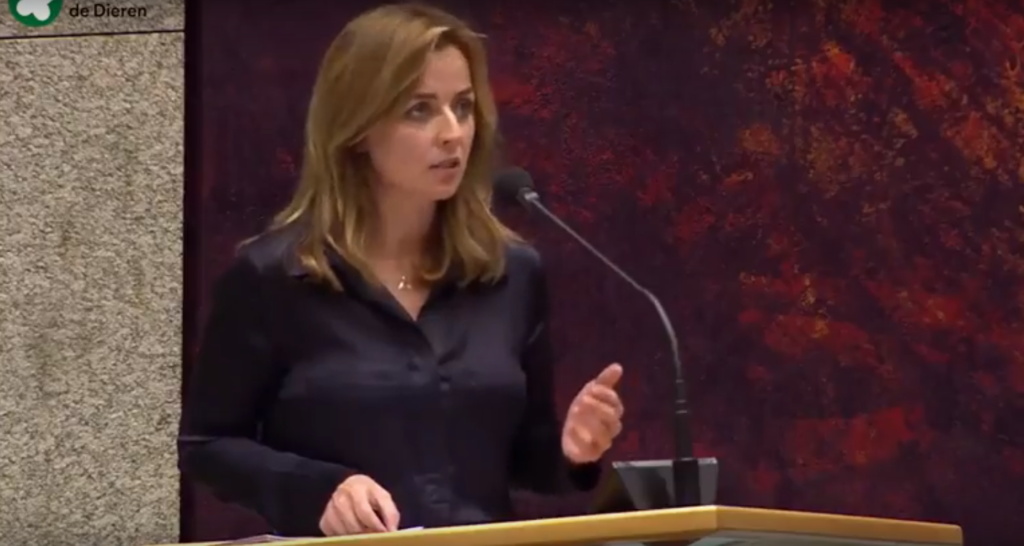
Marianne Thieme in debat in Tweede Kamer over het regeerakkoord
Ook het Planbureau voor de Leefomgeving (PBL) – een Nederlandse overheidsinstantie voor het maken van strategische beleidsanalyses op het gebied van milieu, natuur en ruimte- laat met het doorrekenen van het regeerakkoord zien dat het kabinet vooral vooruitschuift. Dit terwijl o.a. klimaatwetenschapper Bert Metz zegt dat we de komende vijf jaar alle maatregelen tegen klimaatverandering moeten nemen om binnen de 1,5 graad Celsius te blijven. In deze kabinetsperiode dus.
Ons nieuwe kabinet haalt nog niet eens de helft van de afgesproken klimaatdoelstellingen van Parijs. En tot overmaat van ramp is de minister van Economische Zaken tevens de minister van Klimaat. Een beetje alsof je de minister van afvallen en van chocoladepepernoten bent, zoals cabaretière Claudia de Breij het zo prachtig samenvatte. Diezelfde minister is niet eens op de hoogte van het feit dat Nederland het slechter doet dan vrijwel alle andere Europese landen op het gebied van klimaatbeleid. Dat schept weinig vertrouwen.
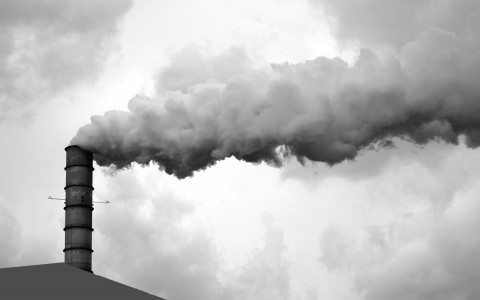
Als “oplossing” voor het klimaatprobleem komt het kabinet met ondergrondse opslag van CO2. Een fossiel plan uit een achterhaald tijdperk, geboren uit achterhaald denken. Het is onhaalbaar, kost onnodig veel energie en gaat ten koste van zonnepanelen en windmolens, omdat het betaald moet worden uit de subsidiepot die bedoeld was om duurzame energie te stimuleren. Het PBL geeft in haar advies ook aan dat er veel meer maatregelen nodig zijn. Een krimp van de veestapel bijvoorbeeld. En een vermindering van de consumptie van vlees en zuivel. Maar dat vereist gedragsverandering van burgers, bedrijven en overheden en dat lijkt onbespreekbaar voor dit kabinet.
Nederland blijft ondertussen een belastingparadijs, een verzorgingsstaat voor multinationals. Waar de burgers door de btw-verhoging fors meer gaat betalen voor alle dagelijkse eerste levensbehoeften, krijgt het bedrijfsleven de jackpot van dit kabinet. De Partij voor de Dieren zegt: maak het vestigingsklimaat in Nederland aantrekkelijk door verlaging van de belasting op arbeid, niet door verlaging van de dividendbelasting. Kies voor het MKB, voor innovatie, in plaats van voor multinationals.
Om de doelstellingen op het gebied van klimaat en circulaire economie te behalen, hebben we een ander economisch model nodig gebaseerd op een breed welvaartsbegrip. De Britse econoom Kate Raworth heeft daar sterke ideeën over met haar zogenaamde ‘doughnut economics’ en laat zien dat oneindige groei op een eindige planeet onmogelijk en onverantwoord is. Een TEDx filmpje waarin Raworth haar visie op een leuke manier uitlegt kan je hier bekijken.
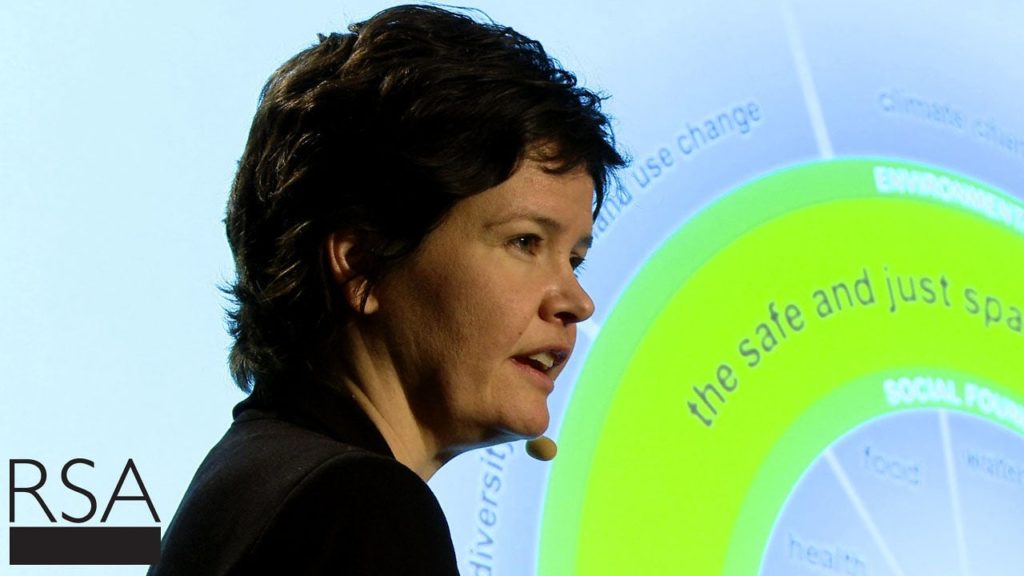
Econoom Kate Raworth
Het gaat er niet om wat we kunnen betalen, maar wat we ons kunnen veroorloven. De voorwaarden voor ons bestaan worden bedreigd. We zitten in een catastrofale biodiversiteitscrisis met ongekend rampzalige gevolgen voor de insectenpopulaties en vogelsoorten. In Duitse natuurgebieden is al 75% van de insecten verdwenen. Oorzaak: landbouwgronden waar lustig gesproeid wordt met gif zoals neonicotinoiden en Roundup. Nederland staat in de top 3 van landen met het hoogste gifgebruik ter wereld.
Het leven in de Noordzee is met een derde verminderd. De vee-industrie stoot immense hoeveelheden ammoniak uit, die de wijde omgeving letterlijk verzuurt en verziekt. In Nederland is nog maar 15% van de oorspronkelijke biodiversiteit over. En zowel veehouderij als visserij worden beschermd door dit kabinet.
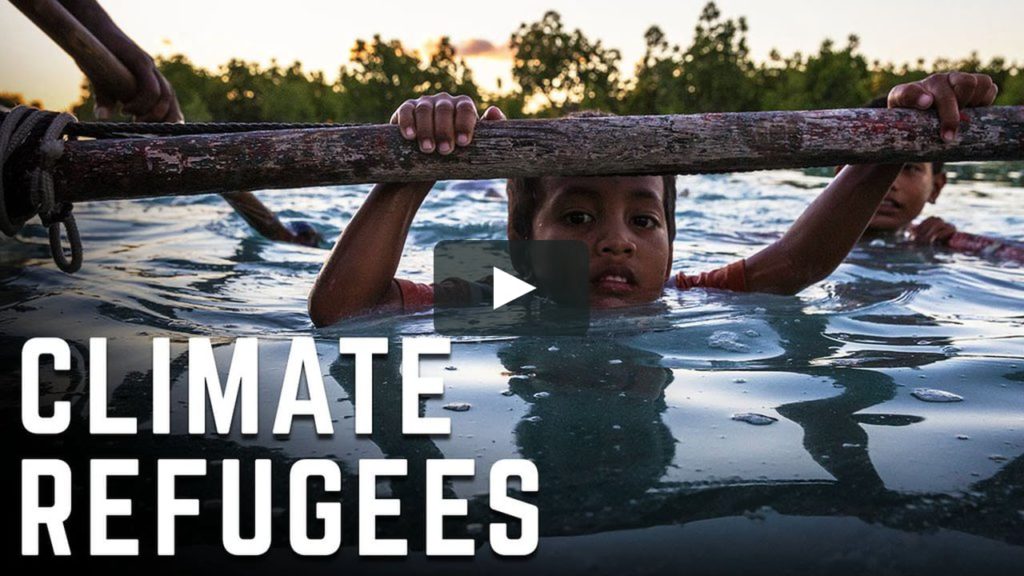
Uit een artikel van The Lancet blijkt bovendien dat door klimaatverandering 1 miljard vluchtelingen op drift raken. We zien bijvoorbeeld dat mensen uit het Midden-Oosten en Afrika verdreven worden door grondstoffenconflicten. We moeten de oorzaken van migratie aanpakken in plaats van alleen maar praten over grenzen dichtgooien. Het dumpen van onze goedkope landbouwproducten ontwricht lokale markten in ontwikkelingslanden. Nederland moet haar agressieve exportstrategie herzien en lokale boeren een kans geven. De minister-president prijst de Nederlandse landbouwsector de hemel in, terwijl de Verenigde Naties juist de noodklok luiden over diezelfde sector: we zijn de aarde aan het uitputten.
De Partij voor de Dieren wil een radicale koerswijziging: de planeet centraal stellen in plaats van de kortetermijnbelangen van de Westerse mens.
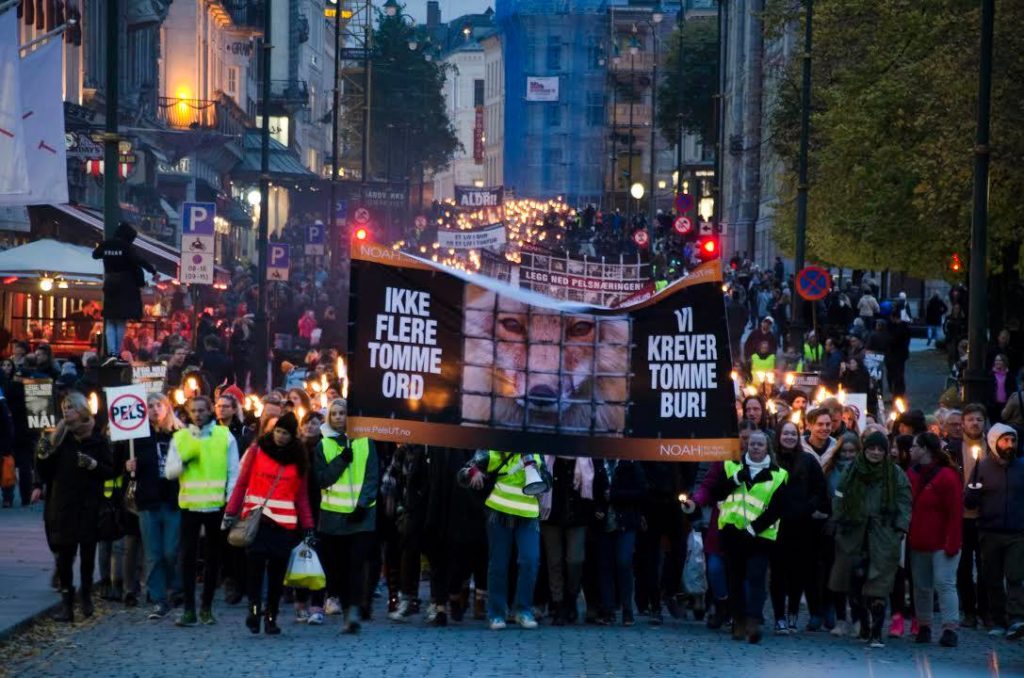
Mars tegen bontfokkerijen in Noorwegen
Voor het debat ben ik nog naar Noorwegen geweest om op de Universiteit van Oslo een lezing te geven over onze partij en duurzame en diervriendelijke voeding. Daarnaast heb ik in Oslo gesproken tijdens de grootste Europese mars tegen bontfokkerijen. Duizenden mensen waren aanwezig. Fantastisch! Mijn speech is Engels gesproken en kan je hier terugluisteren.
Wat onze nieuwe regering niet aandurft, durft New York wel aan: de burgemeester heeft een pilot aangekondigd met Meatless Monday, om zo klimaatverandering en obesitas tegen te gaan. Dat betekent dat er elke maandag geen vlees wordt gegeten. Sterk voorbeeld voor de rest van de wereld!
Tot de volgende keer!
Marianne
In my last Worldlog, I briefly mentioned the fact that the Netherlands’ new government had presented their plans in the form of a coalition agreement. Last week, a debate on these plans took place in the Dutch Lower House. In practice, the plans mean that future generations are going to have to solve the challenges of climate change. For example, the Dutch cabinet has promised to close down five coal-fired power plants, but a timeframe for this will be set after 2023 – which is also after this government’s term of office. Furthermore, the cabinet mostly transfers its responsibility to market failure. For this cabinet, self-regulation is the ultimate solution. During the financial crisis and last summer, however, we have seen yet again how this self-regulation leads to unsafe situations.
Postponing and shirking responsibility for the future of our planet.

Marianne Thieme debating coalition agreement in Lower House
The Netherlands Environmental Assessment Agency (PBL), a Dutch government authority for strategic policy analysis in the fields of the environment, nature and spatial planning, calculated the coalition agreement and came to the same conclusion: the cabinet is mainly postponing. This in spite of the fact that according to climate scientists such as Bert Metz, we will need to take all possible measures against climate change in the coming five years in order to stay within the 1.5-degree target – that means, within the current government term.
Our new cabinet does not even meet half the agreed Paris climate targets. And to make matters worse, our Minister for Economic Affairs is also our Minister for Climate. A bit like having a minister for diets who is also in charge of chocolate candy, as Dutch comedian Claudia de Breij so eloquently put it. That same minister is not even aware of the fact that the Netherlands lags behind virtually every other European country in its climate policy. That does not inspire much confidence.

As a “solution” to the climate problem, the cabinet wants to introduce a system of underground CO2 storage. A fossil plan from another era, born from outdated ideologies. It is unfeasible, will cost an unnecessary amount of energy, and will be at the expense of solar panels and wind turbines – as it will be paid for with subsidies intended for the stimulation of sustainable energy. PBL has indicated that many more measures are needed, such as a decrease in livestock population, and a reduction in the consumption of meat and dairy products. However, that requires changes in the behaviour of citizens, companies and governments, which seems non-negotiable for this cabinet.
In the meantime, the Netherlands remains a tax haven – a welfare state for multinationals. While Dutch citizens have to pay a substantial higher sum for all everyday necessities due to the rise in VAT, the industry gets the jackpot thanks to this cabinet. The Party for the Animals believes a favourable business climate in the Netherlands should be achieved by reducing labour taxation rather than dividend taxation. Opt for SMEs and innovation rather than multinationals.
In order to meet our climate and circular economy targets, we need a different economic model based on a broad concept of prosperity. British economist Kate Raworth has some strong ideas on this subject and demonstrates with her so-called ‘doughnut economics’ that on a finite planet with finite resources, infinite growth is impossible and irresponsible. Click here to watch Raworth at TEDx explain her vision in an accessible manner.

Economist Kate Raworth
It is not about what we can pay, but what we can afford. The conditions for our existence are threatened. We are in the midst of a catastrophic biodiversity crisis, with disastrous consequences of an unprecedented scale for insect populations and bird species. In natural sites in Germany, 75% of all insects have disappeared. The cause: agricultural lands that are liberally sprayed with toxins such as neonicotinoids and Roundup. The Netherlands is among the three countries with the highest use of toxins in the world.
Life in the North Sea has decreased by one third. The livestock industry is emitting vast amounts of ammonia, literally acidifying and poisoning the surrounding areas. In the Netherlands, no more than 15% of the original biodiversity remains. And our new cabinet is protecting both livestock and fishing industry.

Climate refugees
On top of that, an article from The Lancet has shown that climate change has brought one billion refugees to move away from their homes. In Africa and the Middle East for example, people are driven from their countries by conflicts over natural resources. Instead of talking about closing our borders, we should be dealing with the causes of migration. The dumping of our cheap agricultural products is causing local markets in developing countries to collapse. The Netherlands needs to revise its aggressive export strategy in order to give local farmers a chance. Our prime minister applauds the Dutch agricultural sector, while at the same time, the United Nations is sounding the alarm bell on that very sector: we are depleting the earth’s resources.
The Party for the Animals wants a radical change of policy: giving priority to the planet instead of the short-term interests of Western man.

March against fur farming in Norway
Before the debate, I went to Norway to give a lecture on our party and sustainable and animal friendly food at the University of Oslo. In addition, I discussed Europe’s largest march against fur farming, which was attended by thousands of people. Amazing! My speech was in English and you can listen to it here.
Our new government might be too afraid to try, New York is not: the city’s mayor has announced the launch of a Meatless Monday pilot programme, as a way of tackling climate change and obesity. That means that on Mondays, no meat will be served. A strong example for the rest of the world!
Until next time!
Marianne